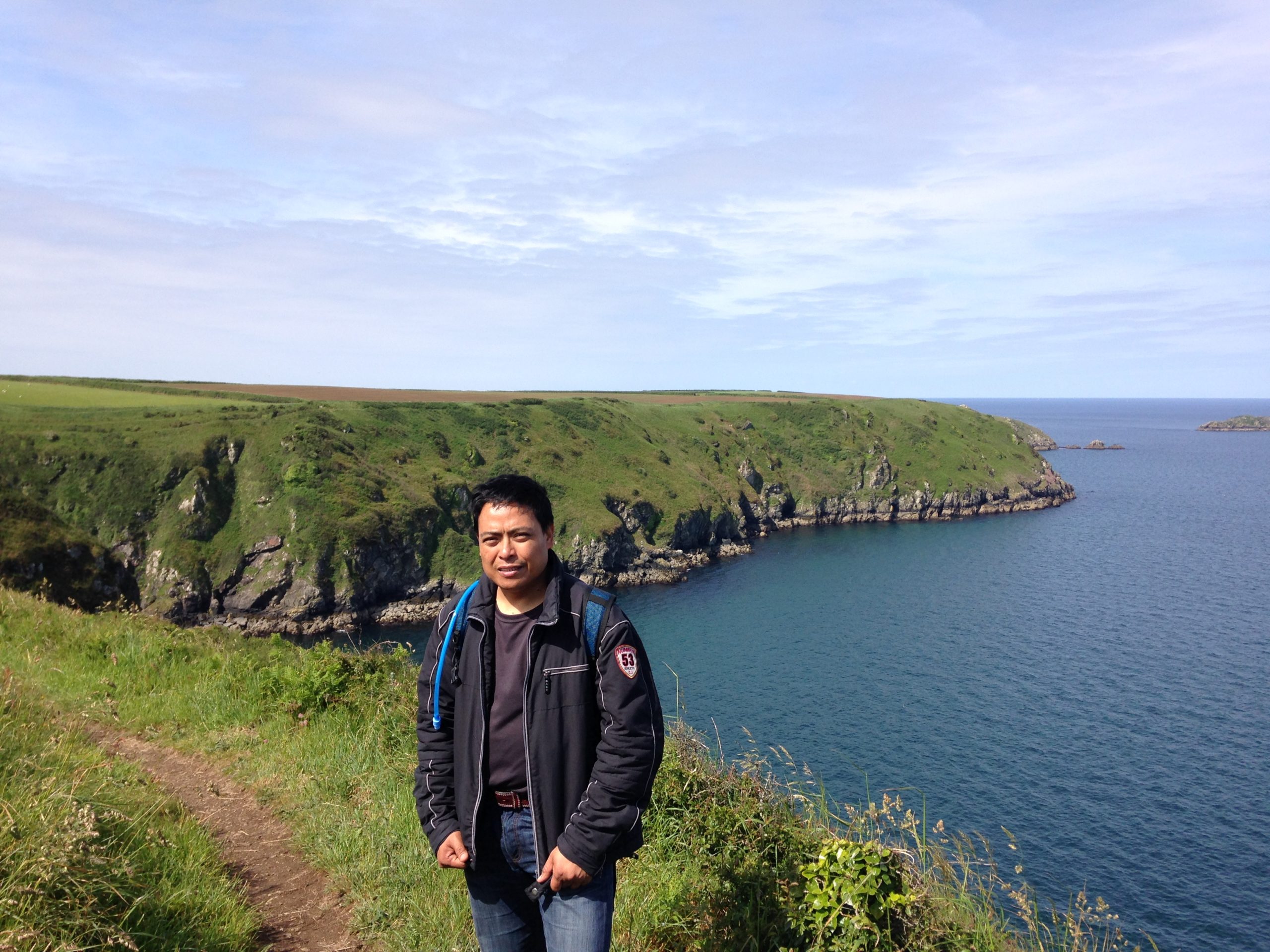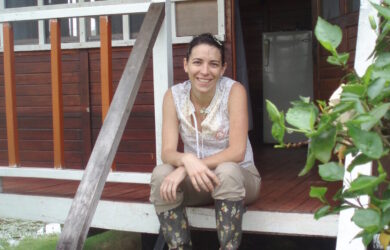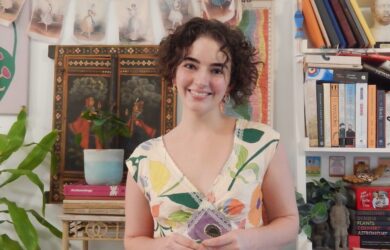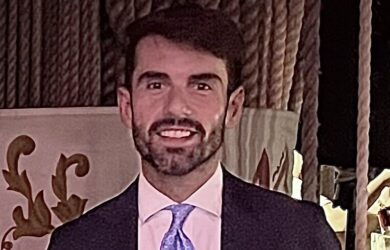
Ramon Maluping wins Overseas Filipino Worker award.
I strongly believe that intelligence is not a privilege; it is a gift, to be used for the good of mankind.
Ramon Maluping
Ramon Maluping has just been named the first recipient of the Huwarang (Outstanding) Overseas Filipino Worker. The award is sponsored by a range of partners, including Christian Broadcasting Networks Asia and Filipino migrant organisations, and is open to Filipinos around the world. Ramon was selected for the award because he was judged to have made a significant impact on the lives of his family, his community and the people he works with overseas.
Ramon [2005] says the award’s emphasis on inspiring others matches that of the Gates Cambridge Scholarship. “Gates Cambridge emphasises leadership and improving the lives of others. It is not just an academic scholarship and that message is something that is very important to me,” he says.
Ramon has overcome significant challenges in his life to get where he is now. Born in a small village in the Philippines not far from Manila, he is the youngest of six children. When he was three years old his mother died at the age of just 41. His father, who only had a temporary job on the railway, found it difficult to cope. By the age of six Ramon was working alongside his school studies. He sold sweets at school and chickens and vegetables at the market in the holidays and cleaned his cousins’ houses in return for money. He says he wasn’t asked to do so, but felt the need to help his family. His older siblings worked too and he says they were good role models for him as was his aunt who helped raise the children.
From an early age he tried to focus on being positive and he put his efforts into working hard at his studies, realising his academic ability could be of benefit to his family. He was top of his class at primary school and was offered a scholarship to a private secondary school, but he turned it down because he didn’t want to start it and then find out he didn’t have the funding to continue. However, he continued to excel at the public secondary school he attended. He was elected class officer from his first to his fourth year of high school and led different academic and social organisations, such as the science and maths clubs. In his final year he was elected president of the school’s student council and won the Gerry Roxas Foundation Leadership Award as a result.
His hard work at school paid off and he passed the demanding University of the Philippines College Admission Test and was admitted to the Doctor of Veterinary Medicine programme. Only one other person in his school passed the test. He decided on Veterinary Medicine because he was good at science and because he liked animals, having raised cattle, goats, pigs and chickens to buy and sell while he was at school.
Responsibility
Ramon is the only person in his family to have gone to university and he was very aware of the responsibility that placed on his shoulders to look after his family. He also had to compete with other more priveleged students. He says: “I had to work even harder just to catch up with my classmates, the majority of whom were educated in exclusive or private schools. However, I took this as a challenge for myself.” Even though he had a scholarship, he had to take on part-time jobs to get by financially. For instance, he worked in a laundry shop at weekends and as a library assistant. He also found time for voluntary and community work. He was a member of the Ugnayan ng Pahinungod, the university's main volunteer organisation, and he was on the executive committee of Rodeo Club Philippines, which promotes excellence in veterinary practice.
One of the projects he led involved a rabies awareness and eradication programme, which he continues to be involved with. He has visited primary schools to talk about rabies and been involved in rabies and foot and mouth disease vaccination programmes. He was also involved in a community immersion project which led to him living for a short time in a rural village. He graduated among the top of his class and also received several awards, such as the University of the Philippines Los Banos Alumni Association Leadership Award for his academic and community work. “Together with the secondary school leadership award it was the grand slam,” he says. On graduating, he got interested in teaching at the university, but there was nothing available at the time so he worked in veterinary practice for a year until a vacancy came up. “It was an opportunity to pass on knowledge, but also to inspire students,” he says. He spent almost seven years teaching at the university before taking up a masters in veterinary microbiology at the SLU, Uppsala in Sweden.
Cambridge
He decided he wanted to learn more about molecular microbiology so he contacted a Cambridge academic who was working in this area and was encouraged to apply in the university and to the Gates Gates Cambridge Scholarships. He was due to start in October 2005 and received his acceptance letter in the last week of June. On 5th July, just days later, he went blind in his right eye. He had been seeing floaters in his eye, but had put it down to tiredness. He didn’t go to the doctor’s because he didn’t like taking time off work. The next day his eyesight got dimmer, but he decided he wouldn’t go to the doctor’s straight away. When he did the doctor told him he needed an emergency operation in Manila because his retina was detaching. The hospital in Manila asked for around 400,000 pesos for the operation only which he had to borrow and some were donated by friends and students.
Ramon managed to defer his entry to Cambridge until January 2006. He said he had hoped that after the operation his "normal" sight would eventually return to his right eye, but it has been impaired permanently and his brain has had to adjust to seeing mainly with one eye.
Ramon says his family expected him to drop out of the Cambridge course because the operation had left him with physical restrictions, such as lifting heavy things, which meant he had to live in a ground floor dwelling. “I thought that I had come so far to get accepted to Cambridge and to get a scholarship. I felt where there is a will there is a way,” he says, adding that Cambridge provided a lot of support, such as a bigger laptop screen. It’s a decision he doesn’t regret. “Studying at Cambridge University is a once in a lifetime opportunity. Being accepted to this great university and winning a very prestigious Bill Gates scholarship has greatly encouraged me to realise my goals, no matter what the circumstances might be,” he says.
Once at Cambridge he joined both the Cambridge University Filipino Students Society and the Cambridge Society for the Blind and Partially Sighted which he says made him realise he was quite lucky as he hadn’t lost his sight completely. He says his eyesight problems affected his performance, but also taught him a lot about himself. “The emotional side of dealing with it was the hardest,” he says “having to learn to accept it.”
His two-year Master of Science research utilised techniques such as oligo-directed mutagenesis and DNA recombination to generate Salmonella mutants lacking genes encoding enzymes of the glycolysis pathway. These helped him to investigate the role of these genes in Salmonella's virulence and pathogenicity, using in vitro cell culture and animal infection models. While studying, Ramon was still able to send back part of his Gates Cambridge Scholarship money to support his family.
After he finished his MSc he decided to take a job in the UK to earn enough money to pay off the debt he owed for his operation and to help his family. Some of that went to renovating the house he grew up in and making it typhoon-proof. He continued to financially support his family and also helped send his nephews and nieces to school. His only regret is that his father and aunt died before they could really enjoy the financial help he was able to send.
He says: “Ever since I was a boy, my goal in life is to provide a better life for my father, auntie and siblings and I am glad that I was able to accomplish that. It just breaks my heart from time to time thinking that my mother, father and auntie did not live long enough to enjoy the fruits of my hard work. It is not a life of extravagance, but it is a quite an improvement on the life that I experienced growing up. What I am most proud of about my family is the fact that in spite of our success, everyone’s core values have not changed. Everyone has remained humble and hasn’t forgotten where we came from. We have always been happy and content in living a simple life.”
Diagnostics lab
When he left Cambridge, where he had been the first Filipino veterinarian to be accepted into the School of Veterinary Medicine, Ramon worked part time at the Royal Veterinary College for six months while also did a variety of voluntary roles, including at his local library and at Oxfam.
He is now working as a senior scientist and head of the microbiology department at a veterinary diagnostics laboratory in England. He is also doing research on the side of his full-time job to keep up his skills and publishes in international journals. He is a Fellow of the Institute of Biomedical Science and a member of the Royal Society of Biology. He has also received the titles of Chartered Scientist from the UK Science Council and Chartered Biologist from the Royal Society of Biology.
His latest voluntary project involves setting up a scholarship grant for low-income schoolchildren in his hometown in the Philippines and he is very passionate in helping to improve public education in the Philippines. He is currently hiking, cycling and mountain climbing to raise money for the Royal National Institute of Blind People (RNIB), a charity that supports people with sight loss. As a sports fan, he volunteered during the 2012 London Olympic Games as a Games Maker and is looking forward to another volunteering post at the 2015 England Rugby World Cup. On the professional front, Ramon does some lecturing when he goes on holiday in Southeast Asia. He is planning a Summit on Development and Infectious Diseases in the Philippines and other Southeast Asia countries – series of lectures focusing on regional issues such as climate change, rabies eradication, development, politics and the threat of antimicrobial resistance. Ramon says Gates Cambridge has had a big impact on him and on his desire to give back to his community.
He is keen to spread that message to other Filipino students. As a Gates Cambridge ambassador, he aims to encourage more students from Southeast Asia to apply and he has plans to invite some Gates Cambridge Alumni Association members to join him in conducting outreach activities in the Philippines next year. He says: “I strongly believe that intelligence is not a privilege; it is a gift, to be used for the good of mankind.”












